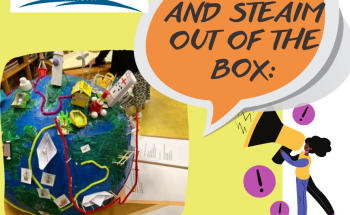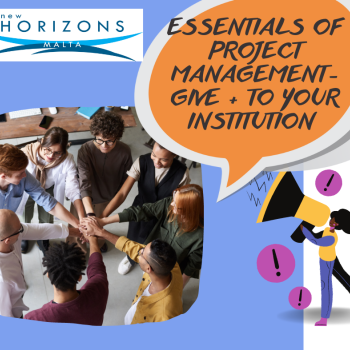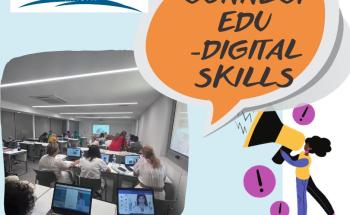
ECOPASSPORT FOR GREEN SCHOOLS AND EDUCATORS- CREATE THE ECOROOTS FOR LEARNING, SUSTAINABILITY AND COLLABORATION
ECOpassport for GREEN schools and educators teaches teachers and students how to think, not what to think, about complex environmental issues.
8 training days format but at your request, the course can be structured for a shorter format of 7,6, or 5 days
Description
The programme is designed on learning modules. The detailed agenda will be given after pre-registration.
LEARNING MODULES: education for sustainability, environmental education, GREEN schools model, ECOgreen toolkit, 3 R (reduce reuse recycle) concept: , PLT Green Schools, apps for environment education, 5 investigations model( energy, environmental quality, water, waste & recycling ,), digital ECO
DAY 1-Course opening event; Ecological education and culture; European and global challenges
Interpretation of nature and animation for nature. Similarities and differences with environmental education.
DAY2-Why Education for Sustainability?
Education for sustainability: what is and what is not ; why EfS is important for students? what does it mean to integrate EfS in the school? Sustainability RAINBOW model
DAY3- What is a GREEN school? Why green school? How do I GREEN my school: 4 pilar for health and sustainable schools and 7 Steps to a GREEN School; Ecological footprint measurements
DAYS 4,5& 6 -ECOgreen toolkit: 15 ECO RESOURCES FOR EDUCATORS (Teaching environmental education through various disciplines)
DAY 7-Apps for ecological education : virtual field trips and more
DAY8-Action plan- design the ECOpassport for GREEN schools
ECOnetwrok- commitment of the ECOpassport ;
Disseminatin plan and sustenability ideas
Course closure event-handing out certificates and Europass documents
Learning objectives
-to understand the basic concepts of sustainability and of Education for Sustainable Development
--to provide theoretical and empirical experiences pertaining to ecological education for school settings, and their contribution towards developing knowledge and skills for active citizenship and quality of life;
-to create solutions for making education center staff and organizations more eco-friendly;
-to create best practices, exchange on tools, methods and applied programs regarding ecological awareness in Europe
- to learn how to engage students with and care for their local environment, both in their school buildings and in their local community
- to cope the staff with practical tools for guiding the student’s to reduce the ecological footprint through ecological awareness
-to be aware of the impact of our daily habits to the environment and ways to change this behavior
- to encourage teachers to plan concrete activities focused on sustainability and climate change education
Methodology & assessment
BEFORE: Every participant will have to fill a questionnaire which helps the trainers to customize the course to better fit their needs. Attendants will get instructions and material which will help them to be prepared for the course’s needs.
AFTER: The participants will get material which includes information about all the areas covered at the course, lesson plans , all the produced outcomes of the course, useful links and more
Certification details
At the end of the course, each participant will be awarded with the Europass Mobility Certificate, together with a descriptive certificate of attendance ( on the certificate will be specified the title of the course, name of the participant project, national reference number, numbers of hours, course dates and location). after participants enrollment, we provide also the learning agreement and the interinstitutional agreement.
Tasks of the participant before, during and after:
Before: After the confirmation and before starting, we check the previous knowledge and experience of participants, as well as their specific needs related to the topics of our training course. They will be given preparatory materials and a needs and profiling questionnaire, for personalizing the learning experience.
Linguistic (if need it) and cultural preparation will be given by the sending organization. For intercultural module, participants will prepare a portfolio with different presentations: organization (school), national education system and national country. The results will be presented during the intercultural event organized
During: fully cooperation with trainers and the other trainees is expected.
After: All participants are expected to maintain access and communication with the rest of their colleagues as well as with the trainer and participate in useful discussions either through e-mail. The participants will get material which includes information about all the areas covered at the course, lesson plans, all the produced outcomes of the course, useful links. The international cooperation between the sending organizations will be encouraged using collaboration on the E-twinning platform.
ON THE LAST DAY OF THE COURSE THE PARTICIPANTS WILL HAVE THE OPPORTUNITY TO CREATE A DRAFT OF FUTURE ERAMUS SMALL SCALE PROJECT AND DESIGN SUPPORT WILL BE GIVEN
Additional information
-
Language:English
-
Target audience ISCED:Early childhood education (ISCED 0)Primary education (ISCED 1)Lower secondary education (ISCED 2)
-
Target audience type:TeacherHead Teacher / PrincipalTeacher Educator
-
Learning time:25 hours or more
Upcoming sessions
Past sessions
More courses by this organiser

STEM, STEAM and STEAIM out of the box: cool innovations and real world applications for class

ESSENTIALS OF PROJECT MANAGEMENT- GIVE PLUS TO YOUR INSTITUTION WITH QUALITATIVE STANDARDS OF PMI



